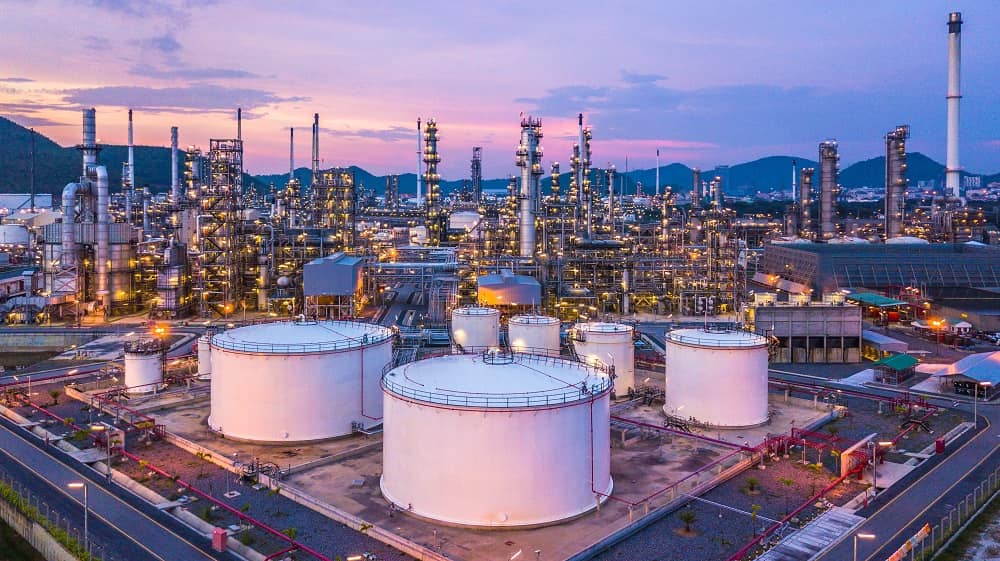Process Safety Problems in Indian Refineries and Prospects of improvement.

Process Safety Problems:
- The Indian refineries have been using obsolete traditional safety measures, which appear more managerial rather technical. The measures are: Commitment to Safety, Safety Culture, Management Involvement, Active and Passive Fire protection, Training and Skill Development, Mechanical Integrity of Equipment, Continuous Improvement in Risk Assessments, Leveraging Technology, Learning from Near Misses and Incidents etc.
- In India the lost-time injury is used as a measure of the safety performance. This does not reflect the performance of the management of the process safety-related risks that may arise from major accident hazards, viz. major fire, explosion or emission of toxic substances; consequence of which impact on many persons both on- and off-site.
- Ageing Indian refineries coupled with changes in crude oil characteristics and traditional working practices are widely perceived factors for increasing refinery risks. The importance of maintaining a high level of Asset Integrity Management for identifying and managing critical safety factors is not perceptible or communicated to general public.
- Facility siting: inter process and inter equipment spacing are based on obsolete norms of some insurance associations/Companies. These norms (developed few decades back) do not address current increased capacities of process units, increased hazardous inventories, and increased levels of operating conditions, as a result number of accidents in refineries are increasing.
- The adoption of the concept of Inherent Safety in Design of refinery is not visible. The refiners are highly dependent on the Engineering Contractors, who are selling generally out of shelf old designs.
- Human Failures leading to lapses, mistakes and intentional errors due to persons remaining in some superhuman mode (“I am versatile Plant Master”) when switched to different role cannot cope new situational awareness leading to accidents. A refinery experienced field furnace operator when put on the duty of Control Room furnace operations, he committed mistake and there was fire in the furnace.
Scope of Improvement:
The safety measures adopted hitherto by Indian refineries do not address holistically the issues of Process Safety and Management as practised in US and Europe, leading to higher accident frequencies in India. On review of the accidents in Indian refineries following precursors of Major Accident Hazards are evident:
⇨ New concepts of hazard identification, Risk Assessment and ALARP at Feasibility and Design stage are not implemented. Although, some RRA reports are available in public domain but on review of these RRA/QRA reports, one can make following observations in regard to their deficiencies:
- For one refinery with Sulphur Recovery Unit, though flammable gas leak has been considered but Toxic Gas release has not been considered, which is not acceptable in RRA/QRA.
- MAH Scenarios, generally consider 5 mm,10 mm 25 mm , 50 mm leak; Full Bore Rupture, Catastrophic Rupture are seldom considered.
- Released quantity, Isolatable Sections inventory, release if instantaneous or continuous are not defined.
- If Hazard impact zones are reaching Central Control Room, occupied buildings and even crossing plant boundaries to cause general public exposed to the hazards, there are no specific recommendations available in RRA/QRA to prevent or mitigate the hazards.
- For implementing brown fields projects on the existing plot of operating refineries RRA/QRA do not address the following issues:
- If adequate space is already available to incorporate the new project complying Hazard analysis and QRA requirements.
- Confirmation through QRA that the new project integrated with the existing facilities and process units do not pose additional or increased hazardous situations, or if so, adequate preventive and recovery barriers shall be implemented.
⇨ Accident Investigation Reports: These reports generally do not report following information:
- Released hazardous substance quantities: flammable, toxic gas release.
- During toxic gas (H2S, Benzene, SO2 etc) release, if general public was informed on hazards and precautionary measures to be taken.
- Human Failure analysis should be part of the report with recommendations for knowledge enrichment, attitudinal changes and behavioural training.
- In most of fatalities, contract workers are the causalities due to inadequate training on operations and hazard. In such cases, the Operation Engineer shall carry out a Job Hazard Analysis and explain the operator fully and get a feedback. Such documents should be part of Investigation Report.
⇨ There is no simulation or situation creation of the Major Accident Event. In one such incident in an old refinery crowded with HC storage tanks, inside one Benzene Tank Fire due to static spark occurred leading to explosion and this explosion threw away the Tank Roof and the dipping operator standing thereon 20 meter away from the tank. By Domino effect this Fire impacted adjacent Benzene Tank throwing its roof 160 m away from the tank. The fire in first tank continued for 5 hours to heat the adjacent tank. Benzene storage relaxation time was not observed before starting dipping as was not available in OISD code, if it was known to operator and he did not follow then it was human failure and this recommendation should have been decided and documented. If Relaxation time after pumping in into Benzene Tank is minimum 30 minutes, then during investigation why it was not recorded.
Is your refinery prepared to prevent major accidents? Learn how to improve process safety and asset integrity with cutting-edge solutions. Contact us today for expert consultation and a comprehensive safety audit.
Office Information
Address
Krishn Kumar Bhatnagar Consultancy Services
A-307, Sector-19, Noida, District Gautam Buddh Nagar, Uttar Pradesh, India, 201301, India
Call Us 24/7
Contact Us
Copyright © 2025 KKB | All Rights Reserved.
Copyright © 2025 KKB | All Rights
Reserved.
